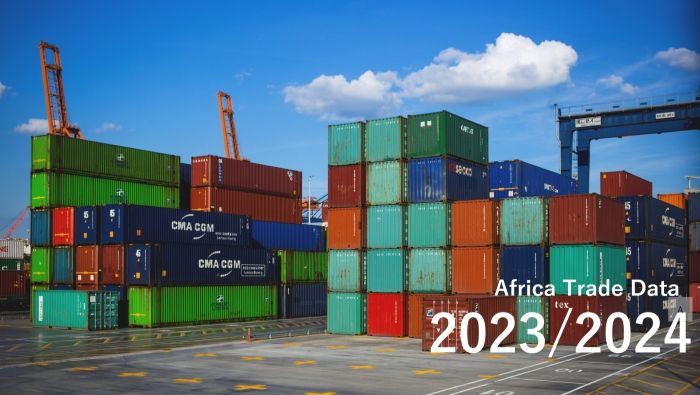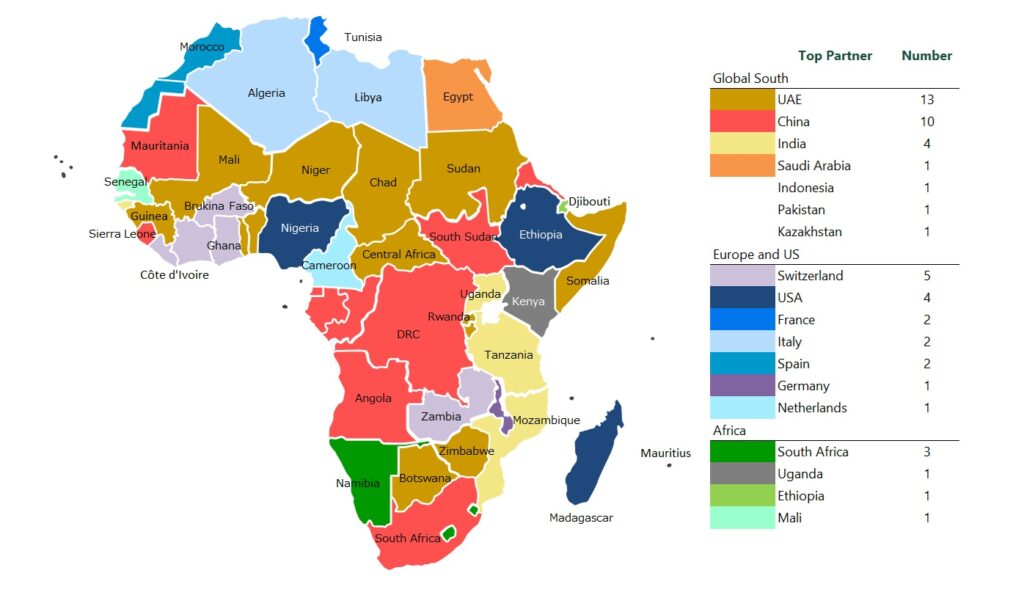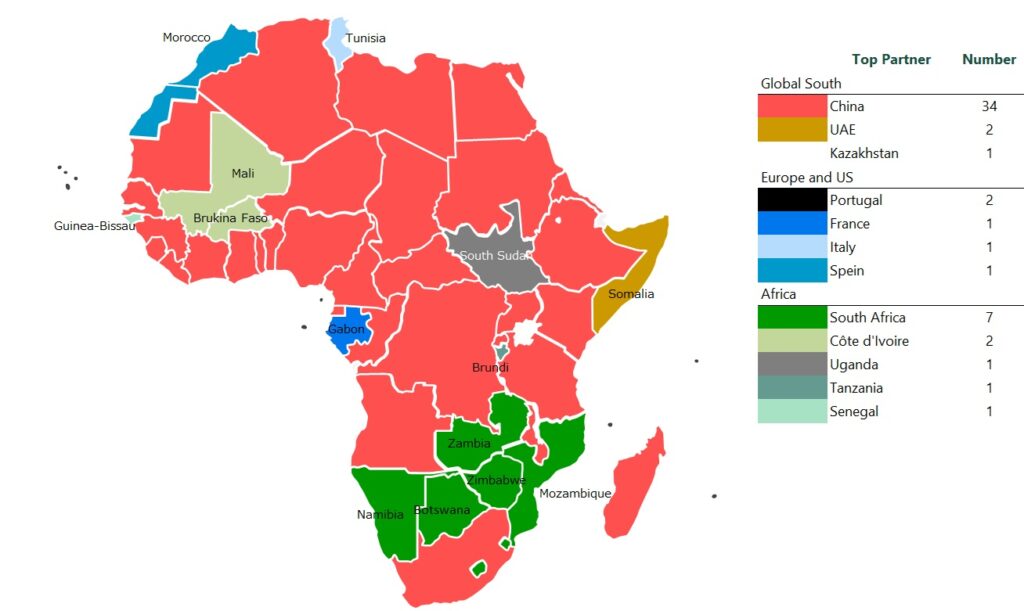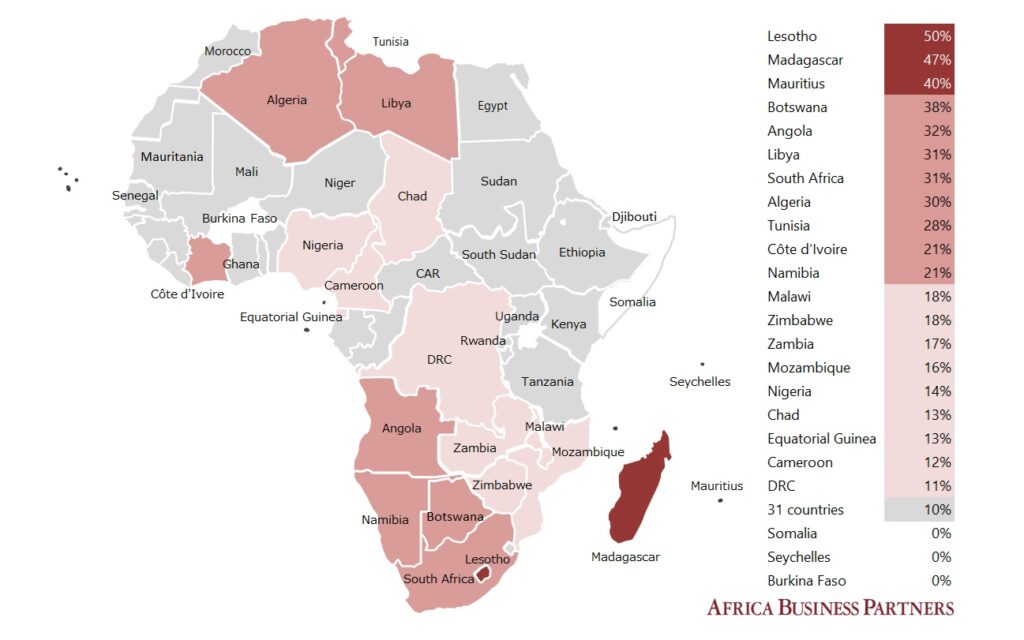Trade Partners of Africa’s 54 Countries and the Impact of Trump tariffs

Which countries are the most significant trade partners for Africa’s 54 nations? Using the latest data of 2023, we have compiled the top countries for both imports and exports for each African country. Similar overviews were previously created for the years 2017, 2019, and 2021 in Japanese.
Africa’s Top Export Partners
China remains Africa’s largest source of imports. Continuing a trend observed since 2021, 34 out of 54 African countries list China as their top import partner. China's strength lies in its comprehensive export capacity, which includes not only large-scale government-related projects such as infrastructure and resource development but also business-oriented goods like machinery and chemicals, as well as consumer products including foodstuffs, electronics, mobile phones, furniture, and everyday necessities.

The countries that do not consider China their largest import partner typically fall into one of four categories: Nations engaged in processing trade with Europe, which import components and materials. North African countries, such as Tunisia and Morocco, which are geographically close to Europe, therefore receive a wide array of goods. Countries within Southern Africa's economic zone are heavily influenced by South Africa, the region's industrial hub. Additionally, many landlocked nations rely on neighbouring coastal countries for imports.
Africa’s Top Import Partners
Africa is often perceived as a continent heavily influenced by former colonial powers, yet it does not play a prominent role in global trade. Among African nations, particularly those rich in resources, the largest export destinations are the United Arab Emirates (UAE) and China.

These countries mainly import crude oil from Africa, with China being a key destination for oil and the UAE primarily importing gold. In recent years, the UAE has been strengthening its relationships with various African nations. Countries such as the UAE, China, India, and Saudi Arabia—often categorized as "global south" nations—rank high as export destinations for African goods.
Geographically closer African countries, like Morocco and Tunisia, have significant trade ties with Europe. Morocco manufactures automobiles, while Tunisia produces wire harnesses, both of which are exported to European markets.
Switzerland is another important player, particularly known for its gold exports. East African nations, particularly those bordering the Indian Ocean, maintain close ties with India. They export various agricultural products, including coffee and nuts.
Nigeria, the United States' largest importer, primarily exports crude oil. Meanwhile, Madagascar and Ethiopia focus on clothing production aimed at the US market. Many African countries are capitalizing on preferential tariffs established under the African Growth and Opportunity Act (AGOA), allowing them to export fast fashion items, jeans, and uniforms to the United States.
Trump Tariffs on African Economies
The Trump administration, which took office in January 2025, is aiming to create advantageous trade deals for the United States by imposing tariffs. However, the impact of these tariffs in Africa is expected to be limited, as there are not many countries on the continent for which the United States is the largest trading partner.

Countries such as Ethiopia, Madagascar, Kenya, and Eswatini, which have developed sewing industries for the United States under the African Growth and Opportunity Act (AGOA), will be significantly impacted by the potential abolition of AGOA and the increase in tariffs.
Furthermore, although South Africa may not be the largest exporter, it does export platinum for autocatalysts and finished automobiles to the United States, which means there will be repercussions for the automotive industry. Notably, South Africa is viewed unfavorably by the Trump administration, raising concerns that trade negotiations may be subjected to continued attacks.
If these tensions escalate, African nations, including South Africa, may seek alternative trading partners, which would elevate the role of countries from the Global South, such as China and those in the Middle East. China, for instance, is already Africa's largest import partner and is not only exporting to the continent but also taking steps to boost exports from Africa.
For example, it has exempted 99% of items from tariffs for 33 out of the 54 African countries. Additionally, China has been proactive in importing agricultural products from Africa by relaxing quarantine regulations and establishing import facilities, presenting a stark contrast to the policies of the Trump administration.
Trade relationship between Africa and Japan
The export and import figures, trade items, and main partners of Africa-Japan trade are described here in Japanese.
